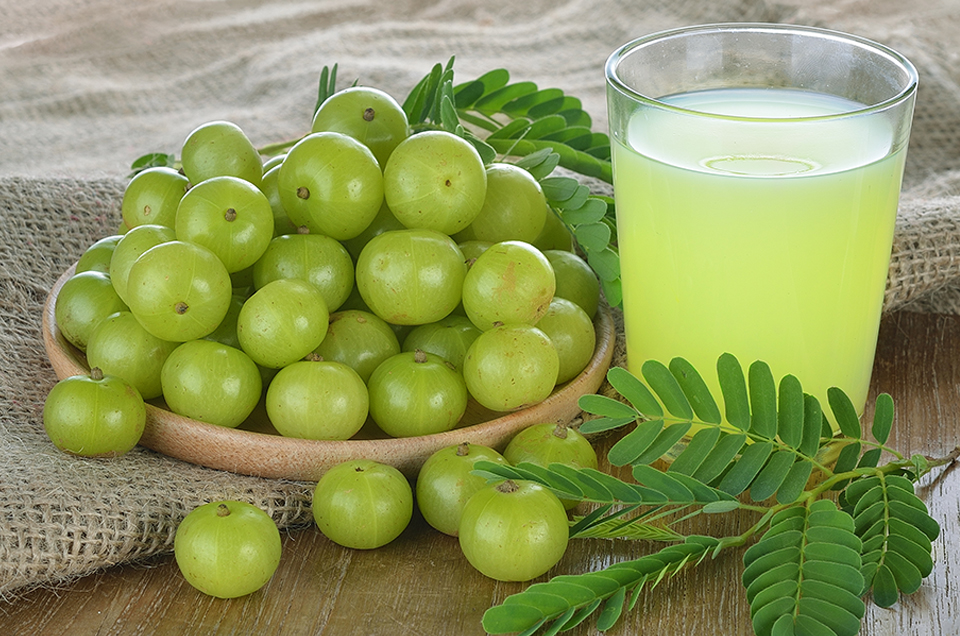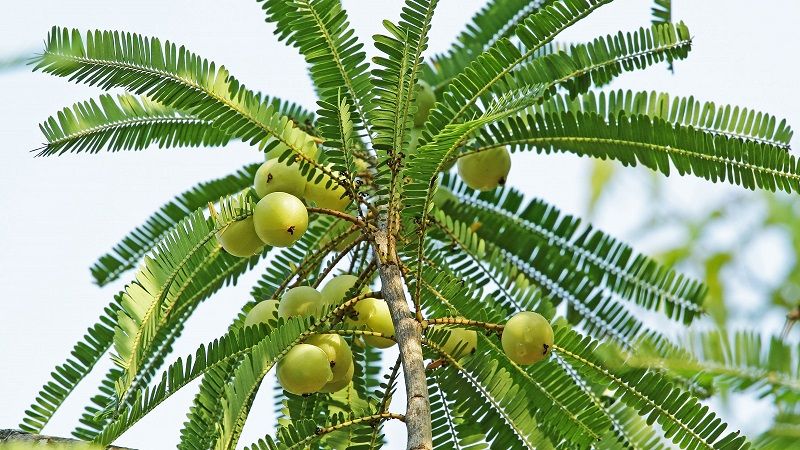Amla
*Botanical name- Phyllanthus emblica
*Common name- Indian gooseberry, amalaki, amla, Malacca tree, Aonla (Hindi), Adiphala (Sanskrit), Indian gooseberry, Embelic, myrobalan, Malacca tree (English)
*Family name- Phyllanthaceae
Indian gooseberry has been used in Ayurvedic medicine for thousands of years. Today people still use the fruit of the tree to make medicine.
Amla fruits are a very rich source of vitamin C .
· Medicinal used – It gives a boost to your immunity: Vitamin C rich amla can give a boost to your immunity. Vitamin C is important for children, adults, and the elderly.
· It is good for your heart health: Content of Vitamin C in amla is great for your heart health. It strengthens and thickens arteries in your heart. This is especially important for people who have high levels of bad cholesterol.
· Amla is good for skin and hair: Health skin and hair is vastly dependent on your intake of Vitamin C. Vitamin C helps collagen perform in the right way, thus improving your skin quality and making it tighter. Amla gives you the glowing skin you have always aspired for. You can mix amla powder with yoghurt and apply it as a face mask. For hair, you can mix amla powder with water of coconut oil or sesame oil and massage it deep into your scalp. It can help in getting rid of dandruff, dry skin on your scalp, and improve your hair quality.
· It reduces inflammation: Free radicals in the body can damage heart, skin and even hampers our immunity. This is because free radicals cause inflammation, which is basically the root causes of a majority of diseases. Antioxidants in amla help in neutralising free radicals and reduce inflammation in the body.
· Amla is a rich source of fibre: You must include fibre in your diet for a healthy digestive system. However, make sure that you don’t go overboard with consuming fibre as it can irritate your bowel and increase risks of irritable bowel syndrome. Include just the right amount of fibre in your diet to stay away from constipation, acidity and stomach ulcers. Amla stimulates the production of acid in the stomach, thereby reducing hyperacidity and ulcers.
· It is great for diabetes: Amla contains chromium which is great for stabilising your blood sugar levels. It improves the insulin sensitivity of your cells, which can be beneficial for people with type 2 diabetes.
Other uses : It is the main ingredient used in the shampoo. Amla oil is used all the world. Amla is used in sauces, candy, dried chips, pickle, jellies and powder. It is even used in the dyeing industry. It extract is popularly used in the ink. Amla wood is commonly used in firework.
Note:- यह एक सामान्य जानकारी है कृपया गम्भीर समस्या के लिए डॉक्टर से परामर्श लें धन्यवाद ! हालांकि, उपयोग करने से पहले एक आयुर्वेदिक चिकित्सक या अपने चिकित्सक से परामर्श करें।
Environment benefit- Amla can grow in light as well as the heavy soils.
The young plants are protected from the hot winds as they dye easily.
Air pollution on your lungs caused due to degrading air quality levels.


